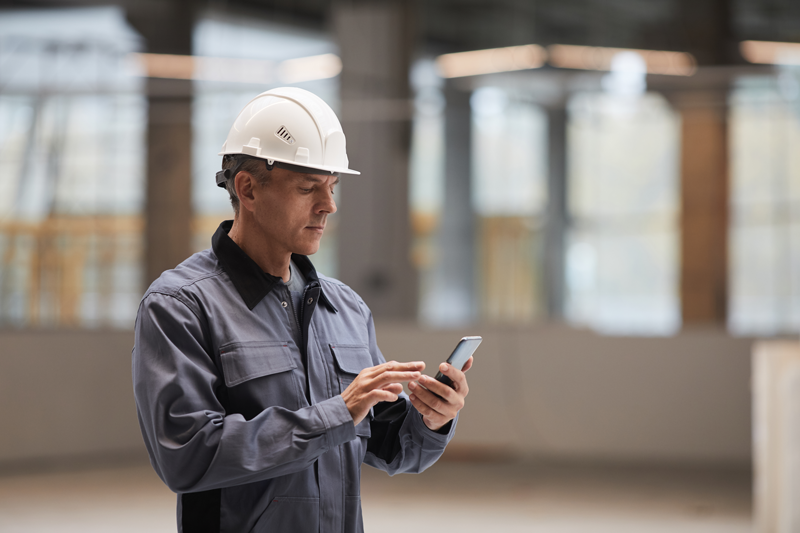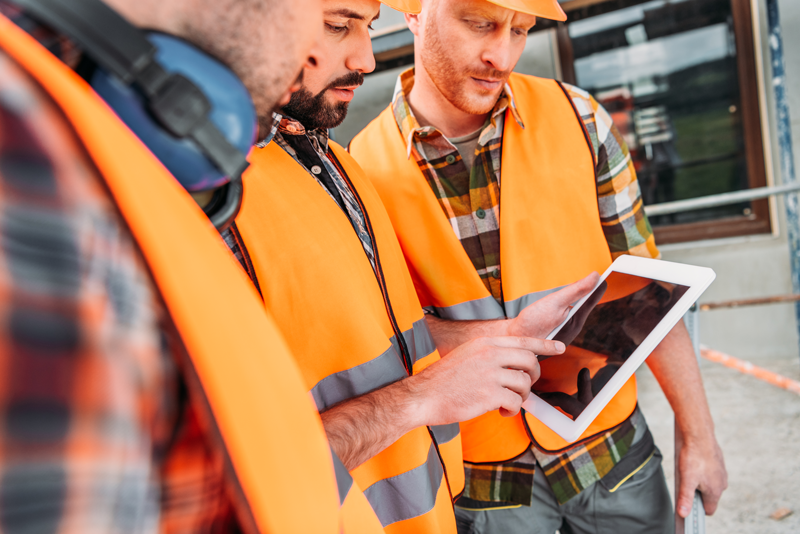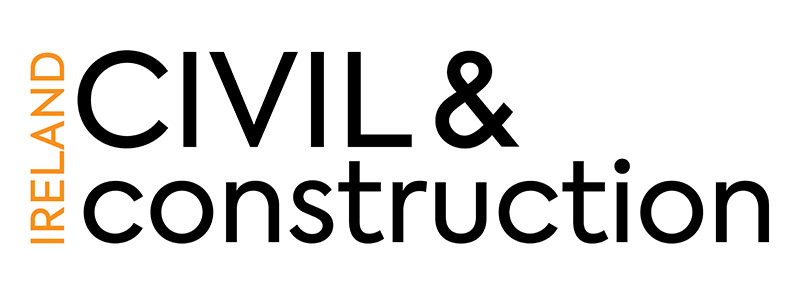
Contech, or Construction Technology, refers to a whole range of technologies used during the construction phase of a project, designed to optimise industry efficiencies and effectiveness.
Construction is often criticised for its traditional stance, it has been objectively slow to adopt new technologies. In fact, it is the industry least impacted by technology over the past number of decades, excluding agriculture. JLL’s recently published ‘The State of Construction Tech’ report confirmed that industry tech adoption in 2020 accelerated significantly. Based on tech adoption rates prior to the pandemic, this adoption rate more than tripled once the pandemic hit. According to the Jll report, the most accelerated categories included software and platforms that enable digital collaboration, virtual scanning tools and safety-focused wearables. This is perhaps unsurprising given the Covid-19 site restrictions in 2020 and the need for additional safety protocols. Significantly, startups offering these technologies attracted the lion’s share of sectoral venture funding during this period. One worrying finding in JLL’s ConTech 2020 report suggests that there will be overall growth in the construction tech industry, however, smaller startups in the tech categories that did not benefit from the pandemic, will likely shut down as they have struggled to gain revenue and traction.

In real terms, the construction industry and the built environment has a disproportionately large impact on the economy, the environment, and society as a whole. It has a reach into all industries as all economic value creation occurs within or as a consequence of constructed real assets. It is too vital to have been shut down for as long as it was in Ireland. At the time of going to press, Ireland holds the dubious pandemic title of experiencing the longest industry shutdown globally. Given the tools and technologies currently available to keep job sites open and projects running, including virtual inspections and automated social distancing on sites, this cannot be allowed to happen again.
Contech – Proptech – Artificial Intelligence (AI) – Machine Learning (ML) – 3D Printing – Digital Collaboration – Scanning – Wearables – BIM – Drones – Robotics – Immersive Technologies (AR/VR) – Digital Twins – 3D-Printing – Artificial intelligence – Modular Construction – MMC – IoT
The list of current and emerging technologies either designed for the construction industry or being deployed across the construction industry is extensive, and growing. For Ireland and UK-based AEC professionals, contractors and their supply chain, it will be helpful to prioritise. In 2020 and Q1 of 2021, the priority was to keep going, which sounds simple – of course, it is anything but simple. With more than two-thirds of construction activity in Ireland classed ‘non-essential’ under Covid-19 restrictions, most of the industry implemented remote working for office and design members of the team. Social distancing measures, though workable, created unique challenges, both on and off site. Technology enabled the continuation of work, starting with video calls to keep vital communications going, CRM platforms to schedule allowable workflows and virtual scanning and survey tools. On essential work sites, wearables are being introduced to ensure social distancing at all times, which is enabling contact tracing. PM Group recently introduced the use of AR, or augmented reality, on its construction sites, Speaking recently on an industry podcast, the Group Head of Innovation spoke about how, once team members became familiar with using the technology, they came up with other potential use cases. Using industry knowledge and experience to improve a technology offering is the pinnacle of tech adoption. This is how contech will serve the industry best. While not necessarily tech-savvy, construction has long been a process-driving industry, one with a history of innovating for efficiencies and continuous improvement. This means that the mindset for change exists, it just needs to be convinced of the business case and the value of implementing new solutions. This will also require a level of peer connection and tech innovator collaboration – most likely with startups – that is new to the industry. Trust, credibility and value creation will decide the next generation of contech successes.
The trends driving tech adoption across Ireland and the UK right now are the need for data and the pressing need to regain momentum after a compromised year. For some projects, this will not be possible, the losses are too great for these projects to be salvaged. For others, the design and build team will likely look to offsite and other MMC, or modern methods of construction, to speed up delivery times and keep some resemblance of programme.
In other contech news, Morrison Utility Services and Eurovia UK are trialing new technology that gives workers a 3D picture of underground services on smartphones in order to avoid cable and pipework strikes; Spot, the dog-like robot created by Boston Dynamics, is now being used by Foster + Partners to scan and analyze buildings that are under construction; and Matterport has launched a new offering for building contractors to digitise the snagging process.
Also, Autodesk, which is acquiring Innovyze for $1B, has launched its Autodesk Tandem Digital Twin Platform for the AEC sectors. This is a digital twin platform that allows a building project to start digital and stay digital, from design to build to operations, and transforms rich data into business intelligence. By harnessing the essential BIM data created throughout the project lifecycle, the platform creates a true digital twin of the asset that can be handed over at completion. This digital handover of accessible and insightful data, will accelerate operational readiness and enhance business decisions.
Smart PMO
smartpmo.io
SmartPMO uses artificial intelligence to learn from anonymised infrastructure project data (schedule and cost) then offer a predictive power and transparency that provides assurance from project planning to closure, helping to save costs and reduce project delays.
Standard Access
Standardaccess.co
Standard Access is the global leader in IoT secure data transmission for the built environment. Creators of the Digital Spine Operating System, this Kerry-based technology provider offers a suite of AI-enabled solutions for new and existing developments.
GOcharge
gocharge.ie
GOcharge operates a reliable and convenient car charging network throughout Ireland for EV drivers. The company is now providing GOcharge electric vehicle charging solutions for housebuilders, which will soon become a requirement in all new residential schemes.
GoContractor
gocontractor.com
GoContractor is a digital onboarding, training and management platform for construction workers. Users can save time while improving worksite safety and compliance through the platform.
ConstructionBOS
constructionbos.com
Based in County Wicklow, ConstructionBOS provides CRM solutions for development suppliers in the construction industry. By integrating construction data from providers such as CIS and Barbour ABI, ConstructionBOS gives clarity and control to sales teams.
While it is important to chronicle and celebrate Ireland-based innovators and innovations, it is equally important to keep a watch on global trends. For example, Sidewalk Labs, an urban innovation company owned by Google’s parent company, is working to make cities more sustainable. Part of this involves actively tackling the lack of housing affordability for everyone through a whole suite of tools and technologies, including empowering urban development teams with cloud computation and machine learning to design better cities, faster, and with less risk. The mantra is ‘Holistically Better, Buildable Designs’. Further information can be found through the website at www.sidewalklabs.com.
The reality is that – despite the boundaryless nature of technology – different technologies are being prioritised and adopted by the industry in different geographic markets at noticeably different rates. We can look at that and call out the slow rate of adoption for construction tech across the traditional sector in Ireland or we can view this as a significant opportunity. When approached strategically, it can be an opportunity to learn from what worked and what did not; what solved real problems; what was worth the investment. Simply put, it is an opportunity to eliminate or certainly minimise risk while leveraging new technologies to solve some increasingly urgent problems, not least of all a shrinking labour force and a growing skills gap between traditional and modern methods of construction.
ConstructionTech columnist Carol Tallon is the CEO of Property District and advises innovators, investors and members of the traditional industry on urban planning, property, construction and smart city technology trends through Proptech Ireland www.prop-tech.ie.
